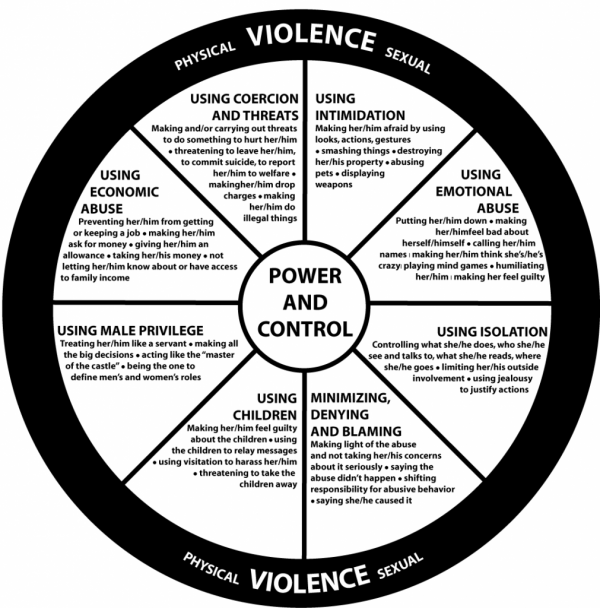RWA Psychology - Family Matters working with women who have experienced trauma and domestic violence. For further information or to make an appointment please contact us.
Everyone has the right to feel safe and free of fear in their own home
The United Nations Declaration on the Elimination of Violence against Women states that 'any act of gender-based violence that results in, or is likely to result in, physical, sexual or psychological harm or suffering to women, including threats of such acts, coercion or arbitrary deprivations of liberty, whether occurring in public or private life.'
Domestic violence can be physical, sexual and/ or psychological. Violence affects a woman's emotional, social and psychological well-being often resulting in symptoms of depression, anxiety, post-traumatic stress disorder or even suicide. Beliefs such as "he's sorry afterwards" or "there are people much worse off than me" are all too common. Too often women blame themselves. There is NO justification for domestic violence. Healthy relationships do not involve violence in any form.
The Duluth Model of domestic violence highlights the multitude of ways power and control is gained over another person.
Physical abuse is only part of a system of abusive behaviors. Women can experience abuse and violence without being physically hurt for example intimidation, isolation and coercion.
Other forms of abuse include:
- Financial abuse, for example gradually taking control over bank accounts and financial transactions. Financial abuse can also be obvious, violent and threatening.
- Emotional abuse for example taking away independence, confidence and self-esteem. This helps the perpetrator maintain power and control in the relationship.
- Verbal abuse for example consistently being subjected to statements that negatively label a person.
- Sexual abuse for example any form of forced or unwanted sexual activity. The perpetrator of sexual abuse may use physical force, make threats or take advantage of a person unable to give consent. Sexual abuse is most common between people who know each other including married relationships.
- Social abuse for example isolating a person from spending time with family and friends, and participating in social activities.
Ultimately the root cause of domestic violence is the desire to gain power and control over another person.
Video - Domestic Violence - NHS Choices
The following video created by the NHS in the UK provides a personal account of domestic violence in the lives of two different families.
https://www.youtube.com/watch?v=OOdPLr4zyNU
Impact on pregnant women and children
Women are at an increased risk of experiencing violence from an intimate partner during pregnancy. If domestic and family violence already exists, it is likely to increase in severity during the antenatal period. Domestic violence has the potential to impact the baby in utero as the mother's stress levels increase drastically and the risk of physical injury is heightened.
Babies and children sense fear and even though they may not directly experience the domestic violence, growing up in fear can have lifelong consequence. The most important this to remember is that your safety and the safety of your children is the most important thing.
Why women stay:
There are many reasons why women stay in abusive relationships. Often they still love their partner and hope things will change. They worry about their children's wellbeing and the impact of separation from their father. They may have lost judgment in their own decision making ability, feel confused and unable to decide the path forward. Fear losing their home and a lack of financial independence. There may be pressure to stay together from family, church or friends. Perhaps their pregnant and hope that this will improve things.
Sadly, abusive relationship rarely change, despite false promises and perhaps even times when the abuse is not present. It's important to maintain contact with people who support you and have a clear escape plan for times of emergency or potential escalation in violence. Communicate this information to your children and ensure all key documents are in one, easily accessible location.
There are services that can help you decide what's best for you and your family. You are not alone, you are not to blame, do not be ashamed to ask for help.
Resources:
Domestic Violence Resource Centre Victoria: http://www.dvrcv.org.au/help-advice
SmartSafe+ App - collect and store evidence to get an intervention order http://www.dvrcv.org.au/help-advice/women/our-smartsafe-app
Reach Out: https://au.reachout.com/tough-times/abuse-and-violence?gclid=EAIaIQobChMIlq6Cka-t1wIVyQorCh14Ng-qEAAYASAAEgIhDfD_BwE
Lifeline: https://toolkit.lifeline.org.au/topics/domestic-and-family-violence/about-domestic-and-family-violence
Service Finder: https://lifeline.serviceseeker.com.au/
NSW Family and Community Service: http://www.community.nsw.gov.au/for-agencies-that-work-with-us/our-funding-programs/staying-home-leaving-violence

We've tailored the services at RWA Pyschology - Family Matters to all age groups from young children to adolescents and adults - and we have specialists in crisis, short/medium term counselling and longer term psychotherapy.
Call RWA psychology for an appointment with one of our psychologists.
